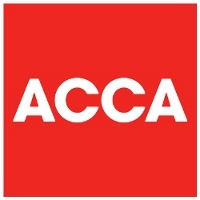“One of the main challenges for South African CFOs is to find capable, qualified accountants that can support them,” says Nadine Kater, the South African Head of the Association of Chartered Certified Accountants (ACCA), one of the largest and fastest-growing global accountancy bodies. “I often hear stories about two or three people at the top of the finance department working 24/7 because they need to check all the work of their employees,” she says, adding that she believes the ACCA qualification addresses this problem.
Kater is a former high school economics teacher, who rose through the ranks at the SETA for Finance, Accounting, Management Consulting and other Financial Services (Fasset) and joined ACCA in May 2011. “ACCA had left South Africa during the apartheid years and only came back in 1999; my predecessors spent most of their time getting our members recognized again,” Kater explains. “Just before I joined the focus changed to marketing the qualification and developing the programs. My mandate was to really develop it and speak to employers, students and other relevant parties.”
Traditionally the South African Institute of Chartered Accountants (SAICA) offers the most popular route to an accounting career in the country. However, Kater says that the ACCA qualification is just what the doctor ordered for South African businesses, which struggle with transformation and finding talented youngsters to populate the finance teams. “The nature of the qualification makes it the ideal way to encourage previously disadvantaged people to become accountants. Most of the traditional routes are tightly wound up. There are big issues around access to good education and often people find that there are no routes open to becoming accountants.”
Internationally ACCA is known as a forward thinking, open access route, which is already available from the age of 16 – in South Africa the institute wants learners to finish their matric first though. Although the ‘ACCA route’ is a practical, far more flexible path than other accountancy qualifications, it is certainly not easier, says Kater. “We prepare students to become, what we call a complete finance professional, which incorporates ten core competencies. You can enter and leave the training at different levels and Bcom-graduates can use their degrees to get exemptions so their undergraduate degrees are not wasted. It is the perfect solution for people that want to become CFOs or work closely with CFOs.”
Currently ACCA is still a small player in South Africa, but Kater, who works with an11 member team, is ambitious. “We have 460 members, 80 percent of those are black South Africans. Of our 2,400 students 90 percent is black,” she says proudly. “We now work with 120 approved employers and are meeting big organisations like the Auditor General, SARS, Telkom, Alexander Forbes and medium sized audit firms who enjoy the quick way we can deliver qualified people. There are very few employers that say an outright no, they’re all interested.”

Employers who want to upskill their current staff can use the ACCA professional accounting route, but they can also send their bookkeepers to train as certified accounting technicians. “People are working and probably can’t go back to study full time, although we also promote a post-graduate route within universities so people can make use of sponsorships and bursaries. Of our students 1,800 are training to become ACCA professionals and 600 of them are on their way to becoming accounting technicians. We currently work with 17 universities and five tuition providers.”

Besides being an ‘open access’, flexible route, ACCA also offers international exposure. “We are present in 173 countries and have offices in 89. The global standard means our qualified accountants are very mobile,” confirms Kater. “We are the largest accountancy body globally, which has lots of advantages. Our qualifications are developed from the bottom up. We interviewed 500 CFOs and keep them abreast of changes in things like managing growth and the extension of shared services. We also do surveys to find out what skills organizations need. This provides CFOs with a network where they can bounce things off each other and find out about best practices. For example, we have virtual conferences where CFOs become thought leaders. I believe CFOs benefit from a strong professional home like ACCA.”
If you also would like to share your ideas with the CFO community and you want to be part of the leading CFO South Africa Community, you are most welcome to get in touch with CFO SA. Please contact Jurriën Morsch at [email protected]
Stay connected, up to date and in the loop on what is happening in the world of finance by becoming a member to receive our newsletter and following us on Twitter. Also to keep track of newly published interviews with CFOs and CEOs.








